Guide to Volunteering in Retirement
FREE DOWNLOAD
Don’t have time to read the whole guide?
How about a copy to-go? Just fill out this quick form and read the guide when it's convenient for you.
You’ve retired (or are about to, or hope to one day) – congratulations!
Volunteering is a great way to get the most out of this next chapter in your life. If you’re searching for “places to volunteer near me,” you’re in the right spot.
More than 14,000 people in the Twin Cities volunteer as part of Twin Cities Habitat for Humanity’s mission each year–and hundreds of them are retirees. We’d love to have you volunteer, too. Whether you’re eager to join or just looking for ideas, we want to help find the position that is right for you.
We’ll start by explaining the scientifically proven benefits volunteering can have on your health, quality of life, connectedness to others, and sense of purpose. Volunteering keeps your mind sharp and can be a great way to develop new skills.
Later in this guide, you’ll learn how to identify the best volunteering opportunities for you, either by developing new skills or by supporting our community with skills you already have. You’ll also see some personal stories from people who found a rewarding retirement volunteering gig.
We’ll cover resources for finding a volunteer position and FAQs about getting involved. Finally, we have recommended next steps to start your journey into volunteerism in retirement.
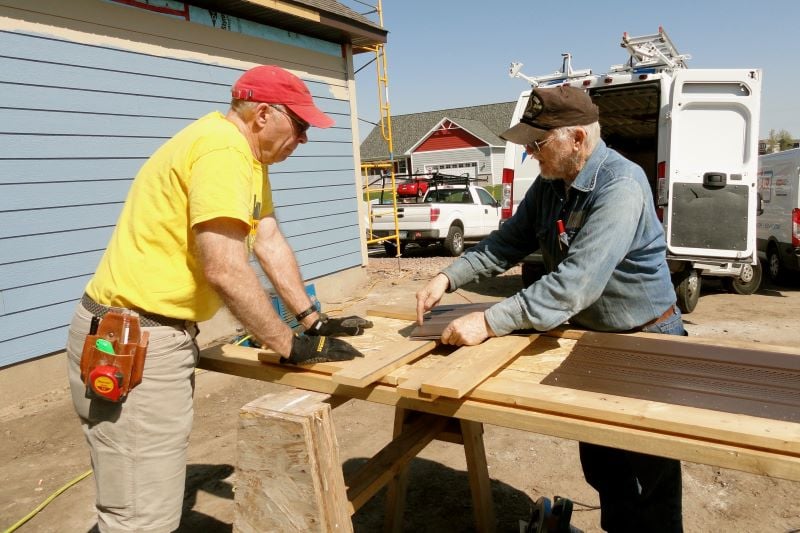
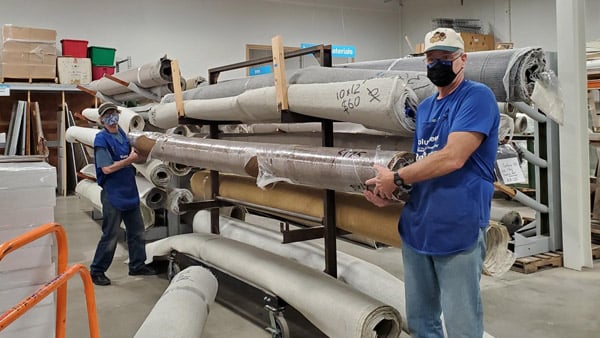
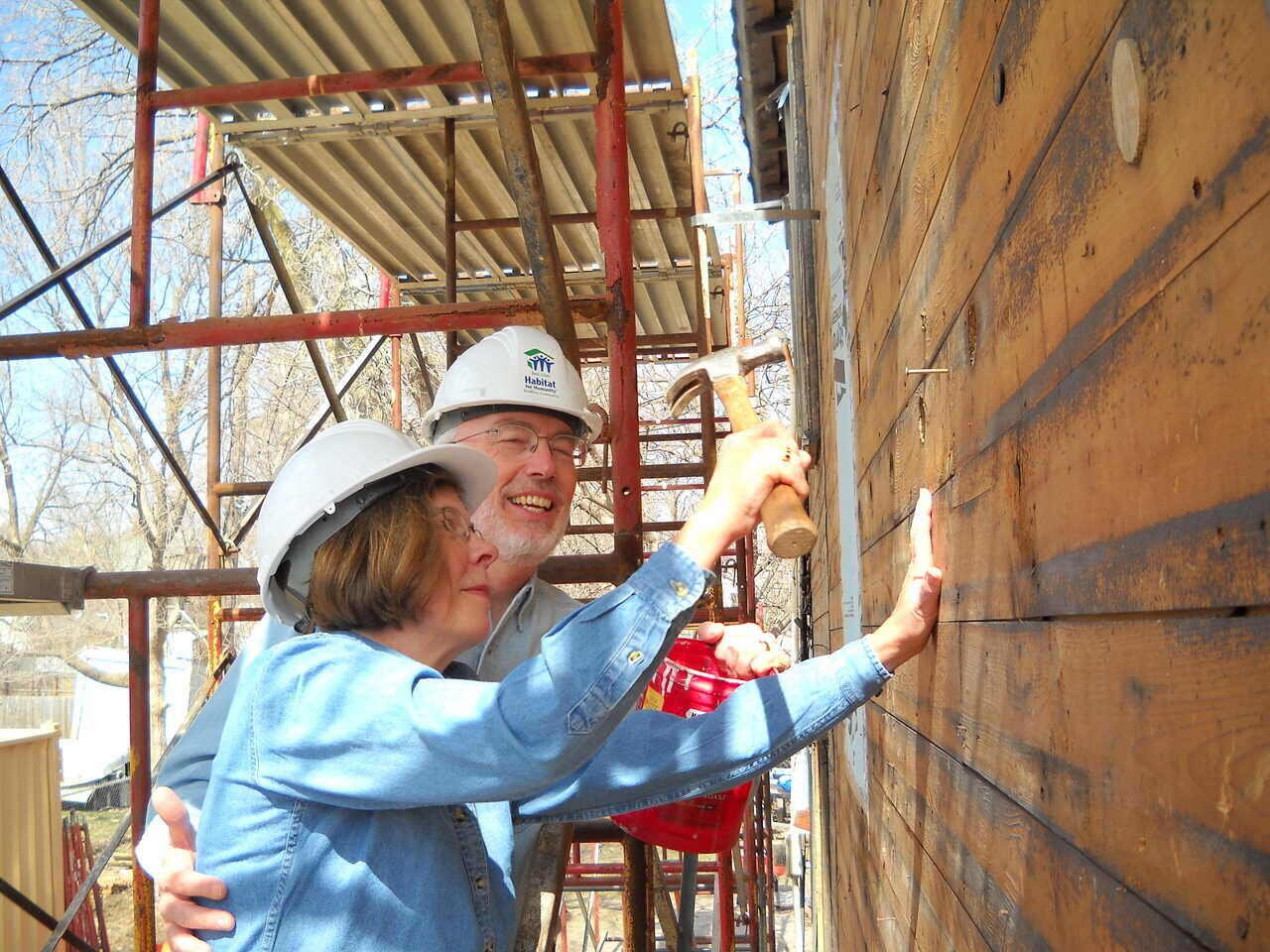
Benefits of Retiree Volunteering
Volunteering can improve your quality of life. Evidence, both anecdotal and scientific, suggests that volunteering helps stave off boredom, extend your life, and fill people with a sense of purpose. Volunteering is a great way to do meaningful work in a low-stress environment outside of a workplace.
Health
There are well-documented physical and mental health benefits for volunteering. Giving your time to help others is linked to lower levels of depression symptoms, psychological distress, and increased functional ability.
Giving (either time or money) makes us feel good, which is good for us. That warm fuzzy feeling is like medicine for our souls.
Socialization
For many people, isolation is a real threat when aging. Volunteering is a smart way to build social interaction and relationships into your new routine.
Volunteering regularly helps develop new friendships. You can meet people who are in a similar stage of life and share a passion for the causes you support. Twin Cities Habitat is blessed to have several Regular Crews working together often, some once a month and others multiple times a week. The people on these crews have tight relationships and feel a level of support and connectedness that is hard to come by in a traditional job.
When you’re weighing potential volunteer opportunities, consider what level of social interaction you want. There are volunteer positions for introverts or extroverts or anyone in between. You can even customize your experience: say you’re a woman who wants to volunteer with other women in an inclusive environment—you can do that!
Volunteering in a thrift store (like a Habitat ReStore) can provide various levels of social interaction. You can opt for customer service or running the checkout if you want to work with a lot of people, or you can handle merchandise or pricing if you’d prefer to be behind the scenes.
Social Responsibility
However you choose to do it, giving back to our community is an important part of a balanced life. Many see it as a rewarding and meaningful activity, especially in retirement. The Twin Cities ranks highly in community aid measures, but we are also a community of great inequality. Choosing a social cause you care about, acting on it, and having an impact is powerful.
Develop New Skills
Our brains need regular stimulation to stay sharp, and learning something new is a great way to do it. Often people take up new hobbies or travel to broaden their horizons. Volunteering can offer similar benefits.
A well-run volunteering experience moves you outside of your comfort zone and allows you to grow in new ways.
- A woman named Susan began baking cookies and bringing them to Twin Cities Habitat worksites more than 20 years ago. Then she started volunteering on sites regularly. Today she’s comfortable running power tools and just about everything else required to build a home.
- Les began volunteering with Twin Cities Habitat in 1996, stepping out of his comfort zone to learn new skills on build sites and later transitioned to helping at the ReStore after retiring. His journey reflects his dedication to Habitat's mission as he continues to volunteer in various roles, fostering meaningful connections and learning along the way.
If you really want to develop new skills, consider AmeriCorps, open to service members of all ages with an emphasis on retirees. AmeriCorps members receive a stipend, get training, and commit to a term of service (usually a year, though shorter assignments are available). AmeriCorps members also get money to use toward education at the end of their service. Additionally, members who are 55+ can donate their education awards to their children, grandchildren, and/or foster children at the end of their service terms.
Have Purpose and Create a Legacy
A job does not define a person, but it can provide a sense of purpose. As we age, having a sense of purpose and fulfillment can become more difficult. Volunteering can help!
Hopefully you’re financially secure enough in your retirement that you can focus time and energy on making our community a better place or pursuing your passions. You can replace the financial benefits from your career with knowledge that your contribution makes a difference.
The decades you spent working may have defined your life, but retirement offers a new chapter to write your story. You can still have a tremendous impact beyond what you’ve already accomplished. Now may be a good time to begin thinking about the legacy you are building as well.
How would you like to be remembered? How can you spend your time to make an impact? What example do you want to set for those who look up to you? If you have always loved animals or kids but your work didn’t revolve around either, now you can dedicate time to those.
Even if you haven’t retired yet, now is the time to act. Volunteerism benefits aren’t reserved for retirees. Finding something that you like doing now, for whatever amount of time you’re able to give, can transition into something more frequent in retirement.
How Do I Identify the Right Volunteering Opportunities Near Me?
You’re sold on the idea of volunteering. The next step is figuring out the right place for you. We’d love for you to join Twin Cities Habitat and believe there's a role here for everyone. But wherever you choose to contribute, here are some reflective questions to ask as you begin your search:
- How much do you want to be challenged?
- What new skill would you like to learn?
- Do you already have a skill that you’d like to use as a volunteer?
- Do you want to volunteer once in a while when it fits into your life?
- Or do you want to have a set schedule so you have a routine and something to look forward to?
- Do you want to volunteer on your own or work on a team?
- How much do you want to be interacting with new people?
- Do you want to be inside, outside, or a mix of both?
- Would you rather be working in an office?
- Would you rather be doing something more physical?
These questions will help you find what you’re looking for. Once you start narrowing your search, here are some additional things to consider:
Time Commitment
Does your preferred organization require a certain level of commitment before you begin volunteering? Some organizations are very flexible, and some plan for their volunteers in advance. Ask before you start, and be clear about what you can offer. Don’t try to impress an organization by making a huge commitment upfront. Instead, see if you can start at a lower commitment and increase later if you enjoy it.
Find out if volunteerism is seasonal for the organization, or if they have different commitments in the winter and summer.
Twin Cities Habitat relies on volunteers year-round and has a special Winter Warriors program to recognize people in the colder months. But if you find yourself leaving the state for winter, you can consider volunteering at any of the more than 1,500 Habitat affiliates in the U.S.
Also, consider how many hours you’d want to volunteer. Build site requirements are typically longer than shifts at ReStore or at community tabling events:
- Twin Cities Habitat build site: Typically seven hours
- ReStore home improvement outlet stores: Typically four hours
- Community tabling events: Typically two hours
Organization
A smaller organization may rely on volunteers to do a lot of their work. This means your volunteerism comes with more autonomy, but it also might mean less help. Try to get a sense for how organized the volunteer department (or person in charge of volunteers) is so you find a good match.
Mission Alignment
Volunteering doesn’t offer direct financial benefits, so it’s important that you believe strongly in the organization’s mission. It’s wise to do some research on the mission, even if you’ve volunteered with the organization before. Most organizations send out regular emails or post information on social media that you can look through. You may find there are parts that appeal to you more than others, and you’ll want to make it clear where you plan to focus your time and energy.
Where to Start Looking
The Twin Cities consistently rank near the top for communities engaged in volunteerism. Still, there is plenty of need for more people to lend a hand. To begin your search, here are four resources to check out:
- Twin Cities Habitat's Volunteer page includes construction and non-construction opportunities for individuals and groups. ReStore’s Volunteer page offers volunteer perks.
- VolunteerMatch.org will show you volunteer opportunities in your community, right down to your ZIP code.
- Find a Volunteers of America office near you using their online tool.
AmeriCorps has a special site devoted to helping seniors find organizations to serve.
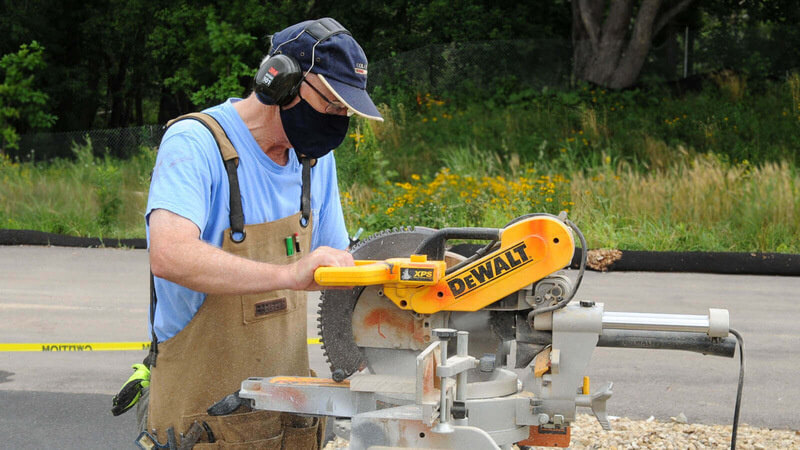
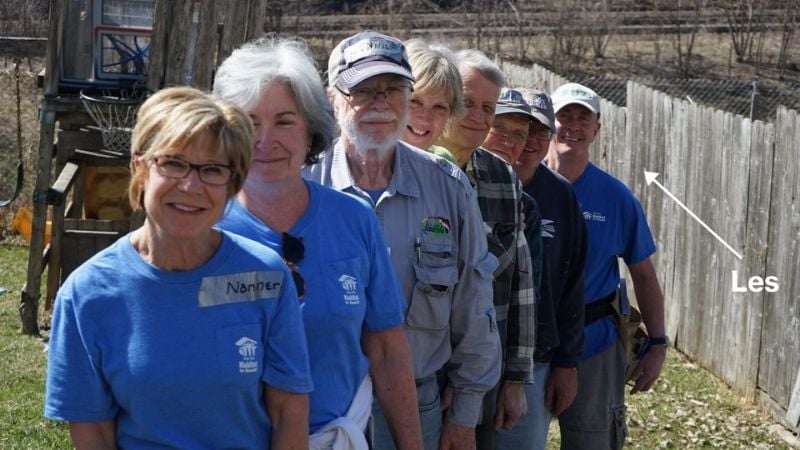
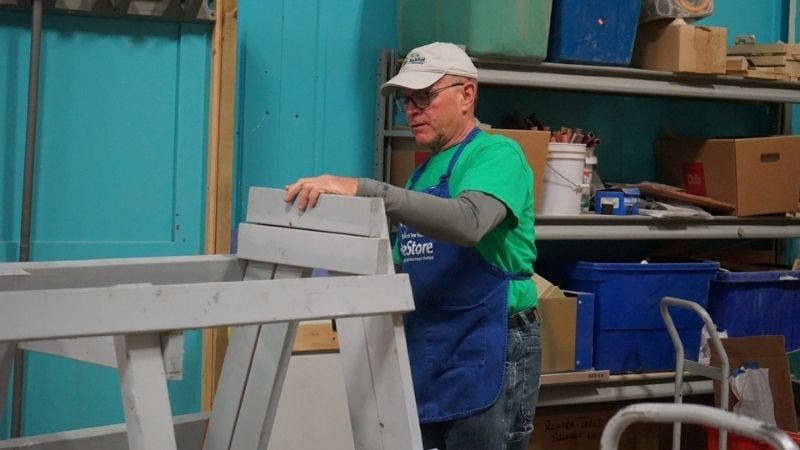
FAQs About Retiree Volunteering
Have questions? These FAQs relate to volunteering with Twin Cities Habitat but may be helpful as you consider other options.
- Do I have to wait for retirement?
- No! Start now if you can. More companies offer volunteer time off (VTO), and you should take advantage if your company does.
- Do I need a group of friends to volunteer with?
- No! You can volunteer individually. You may even build some new friendships along the way. If you would like to join a Regular Crew for instant friends, let us know!
- Do I need experience to volunteer (for example, a Twin Cities Habitat home build)?
- No! You don’t need a specific skill set to help out (at least not at Twin Cities Habitat or ReStore). We’ll help you get the knowledge you need and volunteer safety will always be our top priority.
- Are there leadership opportunities?
- Yes! Most organizations will give as much responsibility to a volunteer as they can handle. For instance, Twin Cities Habitat looks for crew leaders to help organize volunteers and support Site Supervisors on site.
- Can I volunteer all year long?
- Yes! Twin Cities Habitat keeps volunteers engaged (and outfitted with warm swag) through the Winter Warriors program. And ReStore provides indoor volunteering all year.
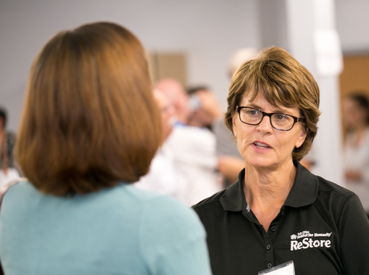 Next Steps
Next Steps
After identifying the right opportunity, simply reach out to the organization and let them know you’re interested. They should be excited that you’ve reached out and will get you the information you need to get started. If you think Twin Cities Habitat is right for you, please contact us through our volunteer page or check out how to get involved in our mission.


